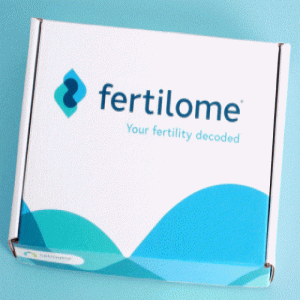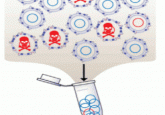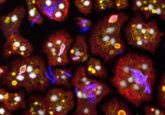Genetic test for female fertility

For the first time, women can get screened for genetic risk factors related to infertility.

Infertility affects about 6% of women in the United States, while 12% of women have difficulty getting pregnant, according to the Centers for Disease Control and Prevention. Age influences infertility, but several reproductive conditions also lead to problems when not diagnosed in advance. Now, researchers have developed a genetic test to identify mutations strongly associated with reproductive health conditions.
“The genetic test was the very first of its kind to be launched. It is designed to help women understand what their genes say specifically about their reproductive path and to help them understand if they may be carrying genetic risk factors for conditions like endometriosis, polycystic ovarian syndrome (PCOS), primary ovarian insufficiency (POI), etc.,” explained Angie Lee from Celmatix, the New York-based company that created the test.
Conditions like POI or PCOS can result in early onset of menopause, which can pose problems for women wanting to conceive beyond 35 years of age. “Family planning trends are shifting and more women are wanting to start families in their thirties. It can take years for women to be diagnosed with conditions like PCOS, but this test can help them get detected for risks at an earlier stage, enabling them to make informed decisions,” said Lee.
To create the test, Lee and her team carried out a systematic analysis of over 25,000 published studies and identified more than 1700 genes associated with 9 reproductive conditions of interest. To narrow down their search, they followed a clinical classification framework and selected 201 genes that were statistically significant in 2 or more studies. Eventually, they came up with a set of 49 variants across 32 genes that were statistically validated in multiple studies and incorporated them into the test. According to Lee, the level of evidence supporting a role for these genes in fertility-related problems is similar to that for BRCA1 for breast cancer.
“I think that Celmatix has taken a nice approach to deciding which genes and variants in the genes to add to their Fertilome panel based on systematic literature and database analysis,” said Ignatia Van den Veyver, an obstetrics and genetics professor from Baylor College of Medicine who was not involved in the study or with Celmatix. “Unfortunately, how they got to the final list of genes and which variants in those genes are important is not easily accessible information. Thus, it is difficult (if not impossible) to evaluate the clinical utility.”
While having a specific mutation doesn’t necessarily mean that an individual will suffer from the associated condition, it can be considered a risk factor, and in some cases, provide additional information to understand potential pregnancy-related concerns.
“This is a field where systematic genomic research and testing is really in its infancy, largely because all the causes of infertility are not well understood and it is probably very multifactorial, where not a single test is going to give answers. Celmatix is beginning to make a change in this,” said Van den Veyver.
The test took about 8 years of research to develop, and currently can be ordered only by physicians in the USA. “What we set out to do is ambitious, but we are happy with the impact we have made in a year,” said Lee.




